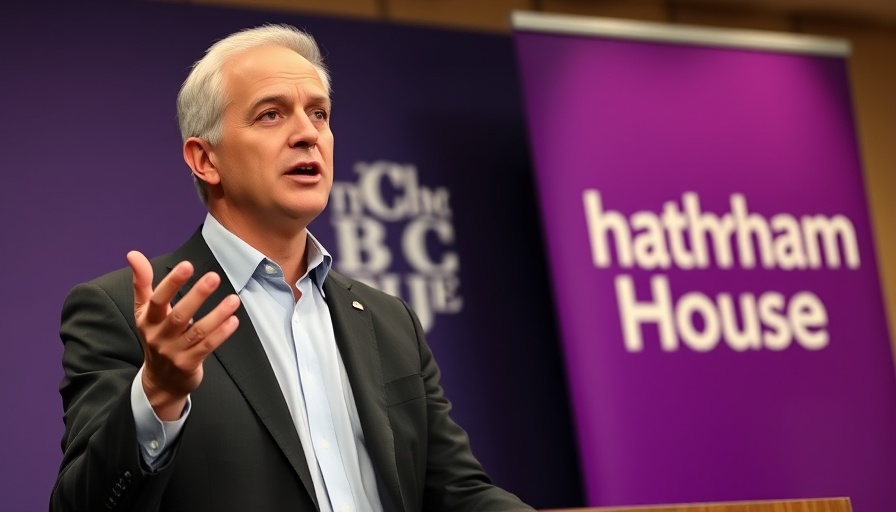
Reassessing NATO's Strategy: A Call for Increased Defense Spending
The recent remarks by NATO Secretary General Mark Rutte at Chatham House bring to light crucial considerations regarding the security landscape in Europe and beyond. Rutte's emphasis on augmenting defense spending to 3.5% of GDP, along with an additional 1.5% for broader security initiatives, signals an urgent response to rising geopolitical tensions, particularly from Russia and the increasing military power of China. This call to arms highlights the need for NATO countries to enhance military readiness in light of current threats.
In 'NATO Chief Mark Rutte Urges Europe to Boost Defence Spending', the discussion dives into NATO's evolving defense strategies in response to global threats, prompting a deeper examination of security needs and implications for member nations.
The Rising Threat of Russia and China
Rutte’s assertion that the primary long-term threat to NATO remains Russia cannot be overstated. Amid the ongoing conflict in Ukraine, he reiterated that NATO's directives are intrinsically linked with balancing the military capabilities of both adversaries and allies. The comparison drawn between Russian military production and NATO's capabilities exposes a stark imbalance; Russia produces ammunition at a rate four times greater than NATO. This statistic calls for a reevaluation of defense strategies by member states, as Rutte argues that a lack of preparedness could embolden aggressors.
NATO’s Global Perspective
While Europe focuses intently on the threat from the East, the Secretary General points out that the landscape of modern warfare is evolving. The increasing military capabilities of China, particularly through alliances with North Korea and Iran, complicate NATO's security dynamics, necessitating cooperative defense strategies that extend beyond traditional Euro-Atlantic borders. NATO’s alliances with countries in the Pacific region, like Japan and Australia, reflect a broader understanding that threats are interconnected and multifaceted.
Why Increased Spending is Imperative
NATO's long-standing directive that member countries allocate 2% of their GDP to defense is now seen as a minimum standard rather than optimal funding. This shift toward advocating for 3.5% signifies NATO's recognition that national security cannot be compromised. Economies collectively represent a significant imbalance: while NATO’s economic power far exceeds that of Russia, military preparedness must match the adversary's capabilities. Investing in modern defense systems and infrastructure is not just a financial commitment; it’s a strategic necessity.
The Domestic Narrative Behind Defense Spending
The challenge for governments in explaining this sudden increase in defense budgets lies in addressing constituents' concerns about national priorities and fiscal responsibility. Engaging the public in open dialogues about the changing geopolitical landscape can help frame security spending as essential rather than excessive. Rutte’s call for transparency and accountability in defense budgets can serve as a model for member states, allowing citizens to understand the link between security investments and national safety.
A Look Ahead: What the Future Holds for NATO
The impending NATO summit in June will serve as a pivotal moment in determining how member states will proceed with their defense commitments. As global affairs continue to evolve, Rutte’s insights paint a picture of a world not merely fighting conventional wars, but engaged in holistic strategic planning to safeguard against widespread dangers. The groundwork being laid today will resonate for years to come, as NATO continues to strive for a unified and robust defense posture against emerging threats.
Understanding the implications of these changes is critical, especially for nations in regions like Africa, where security challenges also loom large but are often overlooked in mainstream narratives. As NATO strengthens its military commitments, it becomes imperative for African nations to reflect upon their own security frameworks and defense spending in light of global shifts. Ensuring a secure future requires proactive policies and cross-continental alliances.
 Add Row
Add Row  Add
Add 


 Add Row
Add Row  Add
Add 

Write A Comment